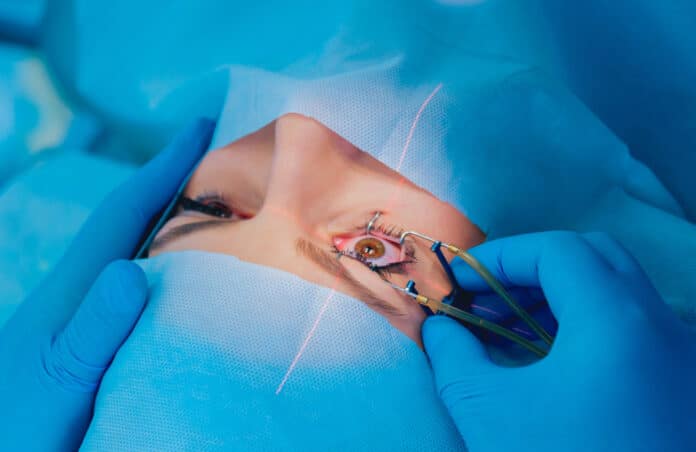
LASIK (Laser-Assisted In Situ Keratomileusis) surgery is a common procedure used to correct vision problems such as nearsightedness, farsightedness, and astigmatism.
It involves the use of a laser to reshape the cornea—the clear front surface of the eye—in order to improve vision.
LASIK surgery has a high success rate and is generally considered safe, but it is important for individuals to understand the potential risks and benefits before deciding if it is right for them.
What Does the LASIK Procedure Involve?
During the LASIK procedure, the patient is given a mild sedative, and numbing drops are placed in the eye. A device called a lid speculum is used to hold the eyelids open, and a suction ring is applied to the eye to help keep it in place.
A laser is then used to create a thin flap in the cornea, which is lifted to allow access to the underlying tissue. The laser is then used to reshape the cornea, and the flap is replaced.
The entire procedure usually takes less than 30 minutes per eye.
Is It Safe?
LASIK surgery is generally considered safe in most cases, but there are a few risks that you should be aware of.
In fact, the FDA has recently published a draft that outlines new guidelines and checklists for patients and providers to assess the risks and benefits of the procedure.
Tell your eye doctor if you have any of the following conditions, as they greatly increase the risk of harm from LASIK surgery. You should not get LASIK surgery if you have:
● Severe dry eye
● Cornea not thick enough
● Keratoconus (Thinning of the cornea)
● Active eye infection or active inflammation
● Recent herpes eye infection or problem resulting from past infection
● Active autoimmune or connective tissue disease
● Uncontrolled glaucoma
● Uncontrolled diabetes
Additionally, there are a number of conditions that are associated with higher risk, but may not exclude you from getting the procedure. Consult with your doctor about considering other options if you have:
● Moderate or mild dry eyes
● Past herpes eye infection
● Controlled glaucoma
● Controlled autoimmune or connective tissue disease
● Taking isotretinoin (acne treatment)
● Controlled diabetes
● Epithelial basement membrane dystrophy
● Weakened immune system
● History of strabismus (crossed eyes)
● Decreased vision in one eye
Make sure to tell your eye doctor if you have any of these conditions. Also, consider that some physical activities, such as contact sports or high-impact movements, may affect LASIK outcomes and recovery.
LASIK surgery can be a safe and effective way to improve vision, but it is not right for everyone.


















